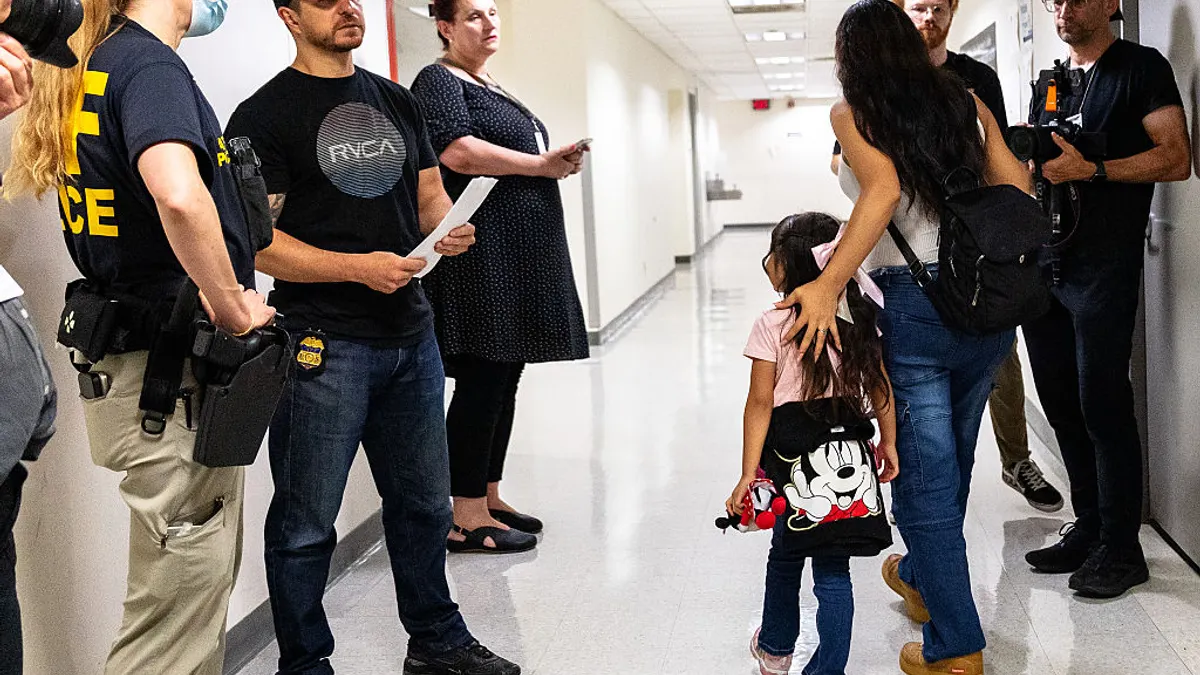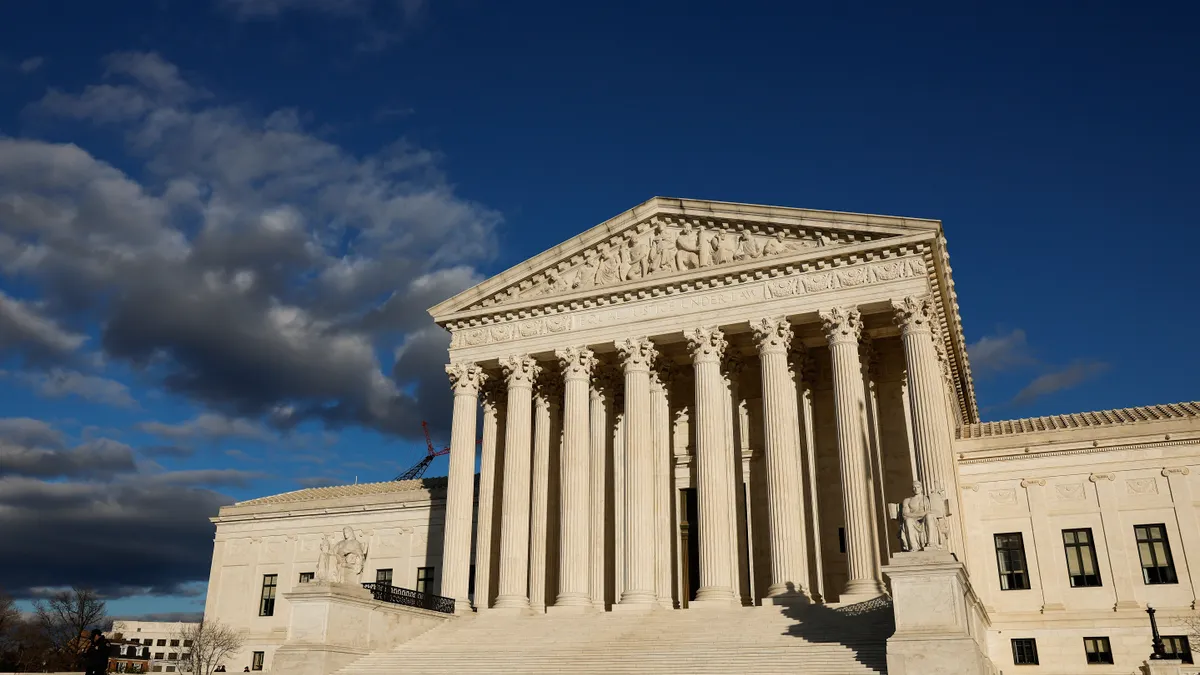Dive Brief:
- The Trump administration’s immigration enforcement policies — which include allowing enforcement on school grounds, prolonged and increased immigration detention, and ambiguity around who may be targeted — are having "ripple effects" on immigrant children and children who are U.S. citizens living in mixed-status families, according to a new report from psychiatric researchers.
- Chronic anxiety over detention or deportation is linked to absenteeism, classroom disengagement and heightened emotional distress, leading students "to avoid school or withdraw from public life."
- The July report calls schools "critical sites for early identification and support” but added they can also be places where immigrant youth “experience trauma-related avoidance, disengagement, or behavioral challenges."
Dive Insight:
Students impacted by the current administration's immigration policies face academic decline and social isolation, in addition to missing out on developmental supports that include access to trusted adults and school-based mental health services, per the report.
The researchers from University of California, Riverside and New York University suggest students may benefit from schools adopting trauma-informed practices, curbing punitive discipline, and ensuring students receive mental health support with special considerations for immigration-related issues.
UC Riverside’s findings come amid reports of immigration enforcement activity on or near school grounds in the wake of policy changes allowing these actions under President Donald Trump.
In January, the Trump administration changed longstanding DHS policy to allow enforcement action on school grounds and other “protected areas,” which were previously considered safe from ICE raids. However, DHS has since clarified that it expects enforcement activity in schools to be "extremely rare."
In April, officers from the U.S. Department of Homeland Security's Immigration and Customs Enforcement attempted to enter two elementary schools in the Los Angeles Unified School District, saying that they were conducting "wellness checks." The officers reportedly made false claims that they had parents' permission to speak with the students.
This month, ICE apprehended a parent during morning student drop-off hours in California’s Chula Vista Elementary School District while two children were reportedly in the car at the time of the arrest. That incident, which happened off of school grounds, was at least the third known time Immigration and Customs Enforcement officers have arrested family members during school pick-up or drop-off time.
"In this context, emotional distress becomes both an understandable and adaptive response to a life shaped by surveillance and exclusion," the UC Riverside report said. "These dynamics underscore that immigration policy does not operate solely as a legal system—it functions as a structural determinant of health."
The report confirms school leaders’ concerns that recent immigration policies are negatively impacting families and students, creating environments of fear and, in some cases, leading to absenteeism.
Multiple lawsuits have been filed to challenge that policy change, including one as recently as July.
Denver Public Schools became the first school district to challenge the policy, saying in a February lawsuit that the Trump administration had created fear in students and families and led to a noticeable drop in school attendance across the district — particularly in schools with immigrant families.
The district agreed to dismiss that lawsuit in June.













